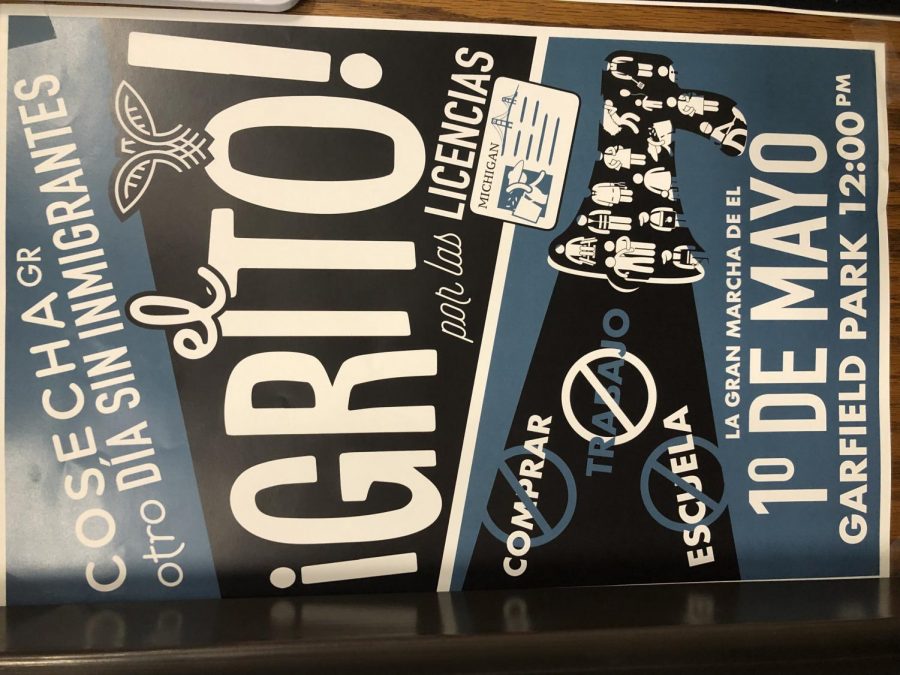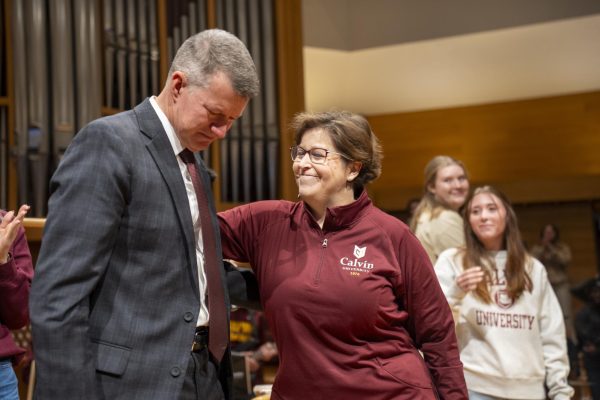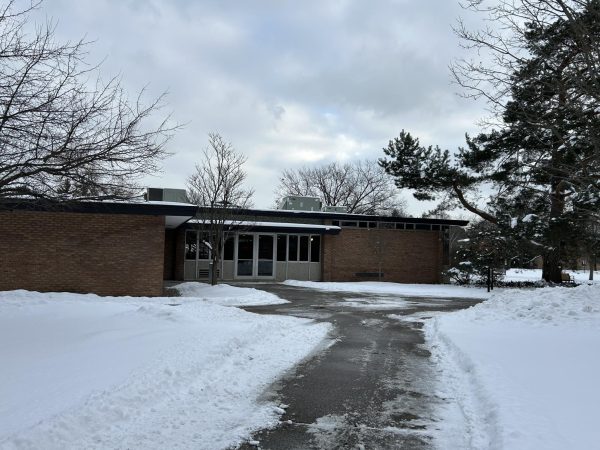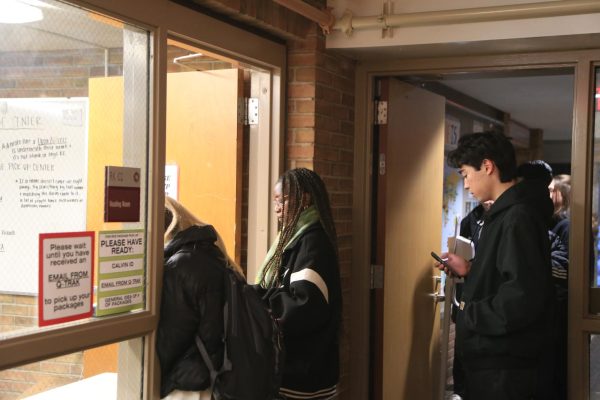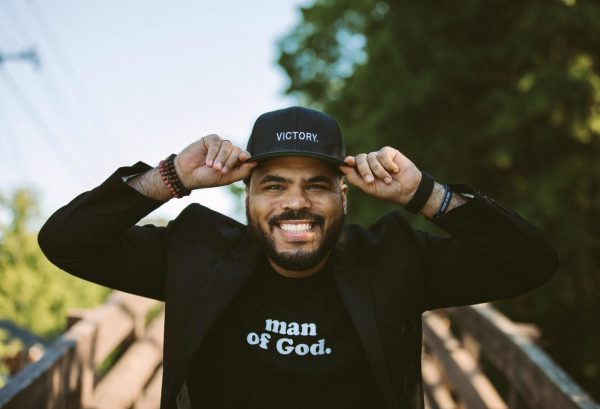Immigration march
Poster for May 1 immigration march
A national immigration advocacy group called Movimiento Cosecha is organizing a national march called “El Grito Por Las Licencias,” or “The Roar for Licenses” for undocumented immigrants. Immigrants and allies will march on Wednesday, May 1 in downtown Grand Rapids, with more marches happening all over the country. Movimiento Cosecha held a training for crowd safety on Wednesday night at Calvin in anticipation of this march.
“In the absence of comprehensive immigration reform, which I think is what everyone would like to see happen, we have a reality where people are living and working and driving in communities without access to drivers’ licenses… that creates a public safety risk for everybody,” shared professor Joe Kuilema from the social work department.
Kuilema explained that many of the people who will be marching on May 1 would like to see Michigan grant undocumented people the ability to get driver’s licenses “so they can continue to play the essential role that they’re playing in our local economy agriculturally, in service industries, without living in a constant fear that if they get pulled over they’re going to be taken in for driving without a license.”
According to Kuilema, 12 states in the US already have a system in place where undocumented people can attain licences.
“There was a time when this [licence advocacy] had a degree of bipartisan support. That has shifted, given the rhetoric of the current administration towards immigrants,” he said.
The goal of allowing undocumented people to get licenses is to help them “come out of the shadows,” according to Sergio Cira-Reyes, a Calvin alum who is involved with Movimiento Cosecha.
“On one hand, the US benefits from immigrant labor, but on the other hand, they won’t give us licenses to drive. What that does is it keeps us marginalized,” Cira-Reyes said.
Cira-Reyes shared further about why Movimiento Cosecha is advocating for licences in Michigan. In November of 2018, ICE detained Jilmar Ramos Gomez after he was arrested by the Grand Rapids police. ICE later released Gomez because he is a U.S. citizen. Cira-Reyes explained that the Latinx community has been wary of how closely Grand Rapids law enforcement communicates with ICE since then.
“The immigrant community in Grand Rapids has had a very fragile relationship with ICE and local law enforcement,” said Cira-Reyes.
Movimiento Cosecha is a “decentralized network of activists working for immigrant rights,” according to Kuilema. Their website states: “You can wear our colors as long as you follow our principles.” Cosecha has intentionally remained unaffiliated with political parties or candidates.
Kuilema explained his connection with Cosecha.
“[Cosecha is] interested in immigrant rights and immigrant justice, and that’s something I care about as a Christian and as a social worker, so it’s been natural for me to get involved with some of what they’re doing in the community.”
He also shared some of his own family history. “My great-grandfather immigrated here from the Netherlands in 1912… and he was given a chance to become American, so that always weighs heavily on my conscience when I consider these issues. I think the least thing that we can do is make the current system work as well as it can. I think driver’s licenses are a straightforward response to that.”
Around 30 people, both Calvin students and others, attended the crowd safety training Wednesday night. Kuilema explained that one of the goals of this kind of training is teaching people “to directly interact with [counter-protesters] and to attempt to de-escalate them so that it doesn’t result in violence, particularly against affected community members.”
Kuilema added, “I hope some Calvin students will go out. Calvin is not endorsing this event… At the same time, I think Calvin does encourage our students to live wholeheartedly and to act justly, and to think about what that means in their own community… [and] ways they can walk alongside oppressed communities.”



